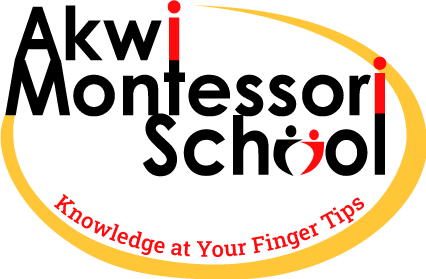Montessori education is commonly associated with the pre-school age, as the Method was first developed in this group. Montessori education goes in cycles; birth to 18 months, 18 months to 3 years, 3 – 6 years, 6 – 9 years, 12 – 15 years etc. These cycles follow the planes of development.
At Akwi Montessori School, we admit toddlers at 2½years, the Montessori Nursery (3 – 6 years) and Elementary (6 to 12 years).
